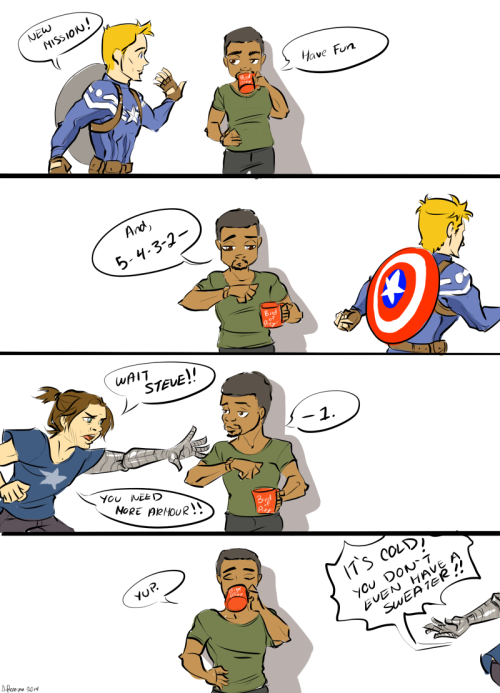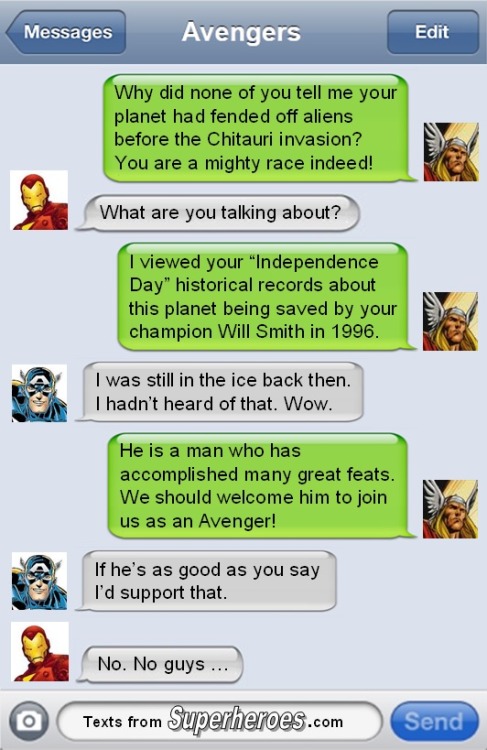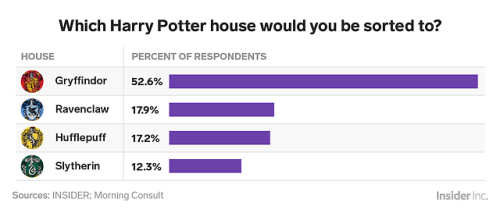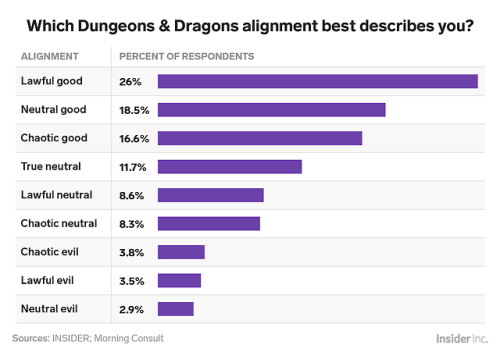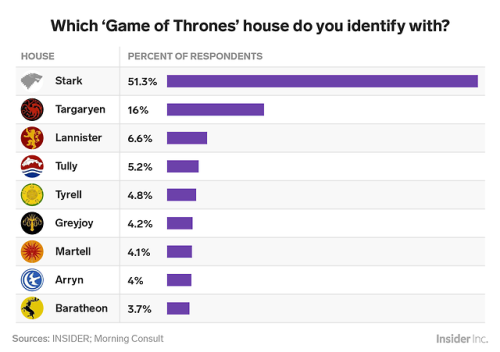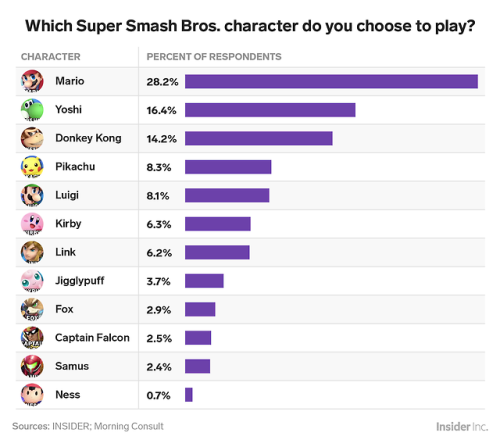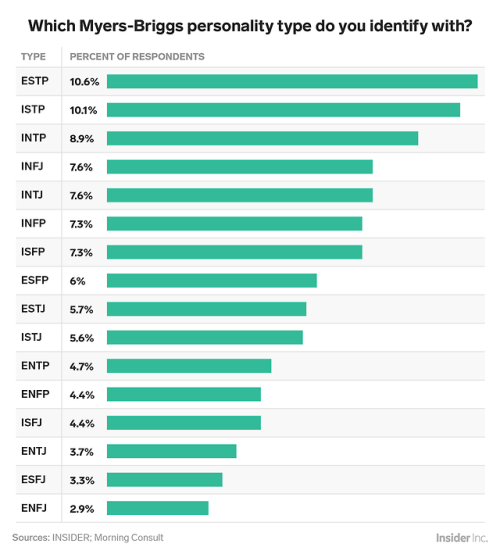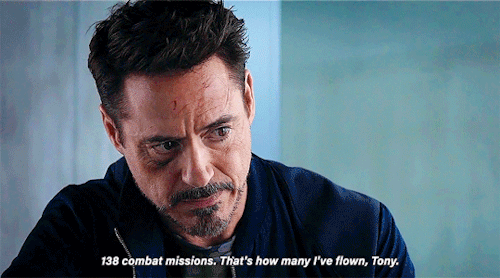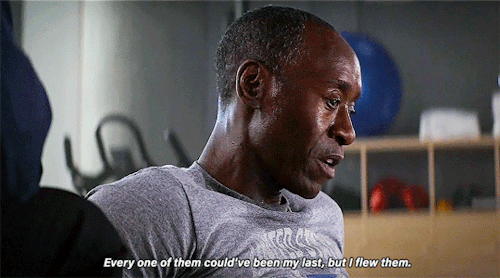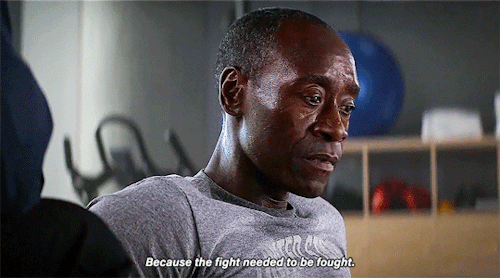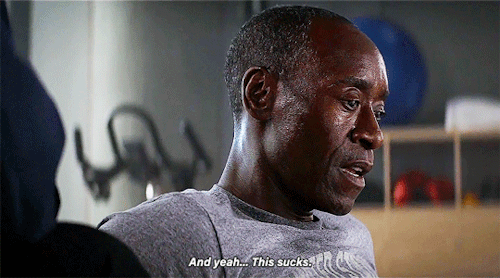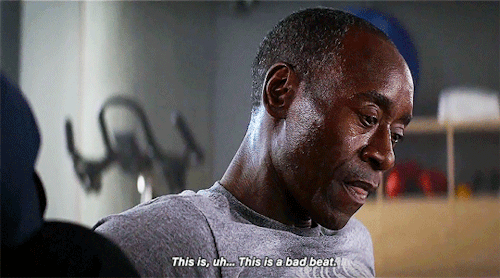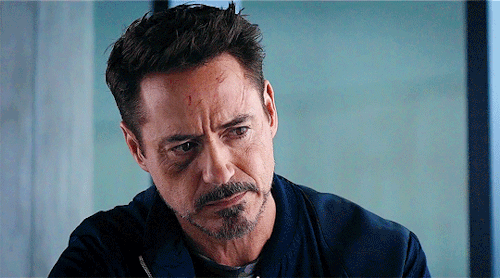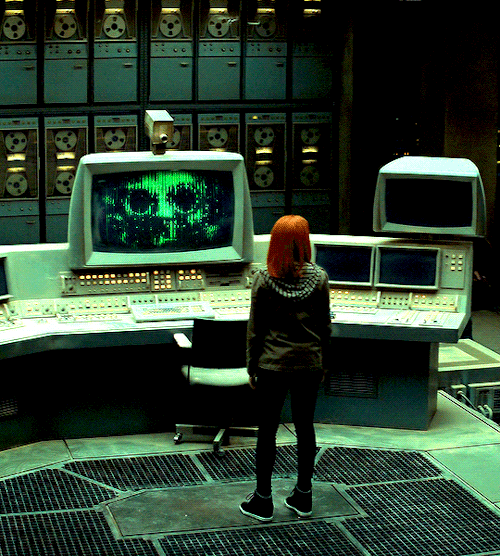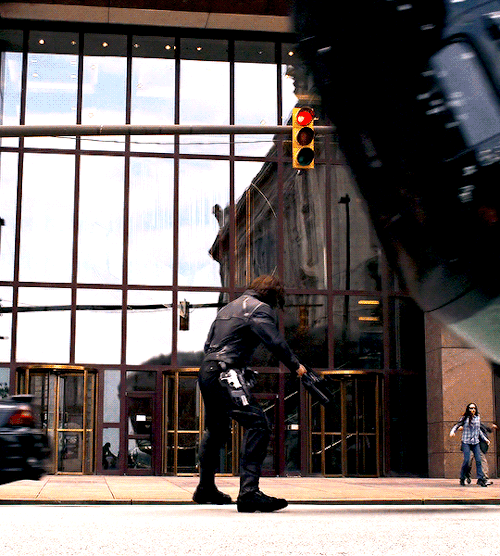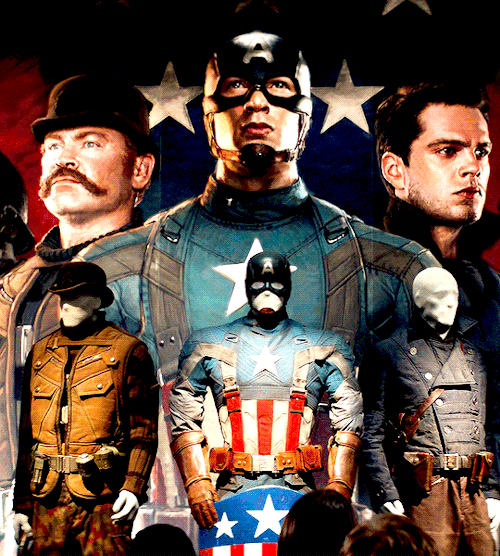#captain america
steve would legit be the one on the team who would constantly have to be pulled out of bar fights like
“so i told her that… steve where are you going?… steve gdi COME BACK HERE not again!”
“THE LADY SAID SHE DIDN’T WANT A DRINK!”
#STEVE SAVING LADIES FROM CREEPS IN BARS #STEVE TELLING OFF GUYS CATCALLING IN THE STREET #STEVE MAKING SURE THE TOO-DRUNK GIRL GETS IN A CAB HEADED HOME ALRIGHT AND PREPAYS #NO ONE BELIEVES THE GIRL WHEN SHE SAYS IT THE NEXT DAY #”CAPTAIN AMERICA MADE ME DRINK TWO GLASSES OF WATER AND PAID FOR MY CAB RIDE HOME” SHE SAYS #HOW DRUNK WERE YOU HER FRIENDS SAY #STEVE BEING AN ALLY #STEVE STOPPING HARASSMENT OF A TRANS LADY ON THE STREET AND MAKING SURE SHE GETS HOME WITHOUT ANYONE ELSE BOTHERING HER #/STEVE ROGERS/ #THE KIND OF NICE GUY GUYS SHOULD ACTUALLY WANT TO BE (viavonne-gutted)
#!!!#for real though i think a lot of people forget that steve was the punk who picked fights with bullies#that he isnt an old timey gentleman who never swears and is always proper#like nah son u can bet that if he tried to take on a mountain of a man with 90 pounds of him ft. a trashcan lid#u can bet that he will use his new body to beat up all the new bullies whilst handing the victim a handkerchief to boot ok#steve rogers (viasavingsergeantbarnes)
In January of 1977, I turned ten-years-old. And around that time, I would up getting my second book collection of vintage comic book stories–a book that, up until that point I didn’t even know existed. We found it in the remaindered section at Two Guys, a regional low-rent department store chain, kind of like the K-Mart of its day. And because I had money that had been given to me for my birthday, I was able to buy it. By that point, it was twelve years old and had gone through several printings–it was, in fact, the very first collection of vintage comic book stories ever published, coming out in 1965 just ahead of the Batman TV show craze.
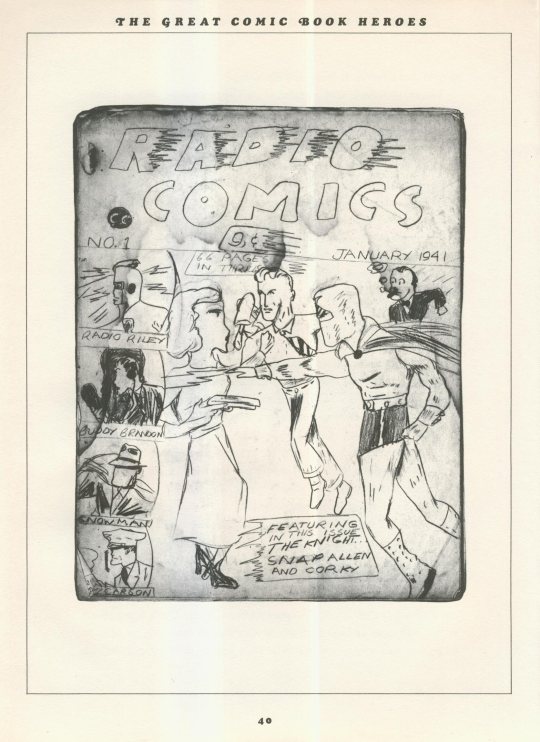
THE GREAT COMIC BOOK HEROES began life as an article that Jules Feiffer had written for Playboy magazine, of all places. It was a nostalgic look back, warts and all, at the comic books that were a part of his youth and the state of the industry a few years later when he was able to get into the business working for Will Eisner. From there, Feiffer went on to be a successful syndicated cartoonist, his strip primarily appearing in the Village Voice, as well as an accomplished playwright. He was so well-regarded, in fact, that he was able to convince a number of publishers to reprint stories from their back catalog in this hardcover collection–publishers who, up to this point, has never really worked in concert before.
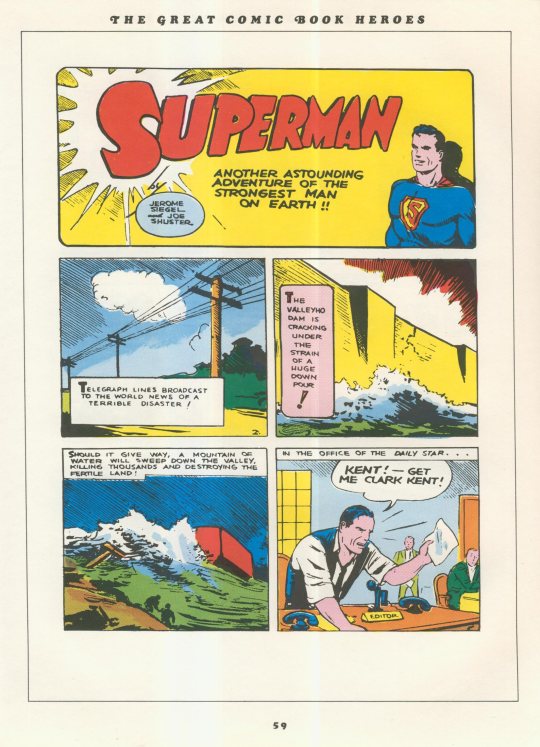
As no good reproduction materials existed, Feiffer worked in concert with DC’s Jack Adler to pioneered a process by which old comic books could be photographed under certain conditions to create a usable black line image, and then recolored. This same process was later used on many of DC’s reprints, in particular the FAMOUS 1st EDITION treasuries–I gather that the reason its use wasn’t more widespread is that it was more costly and time-consuming than was considered worthwhile for a regular comic book release.
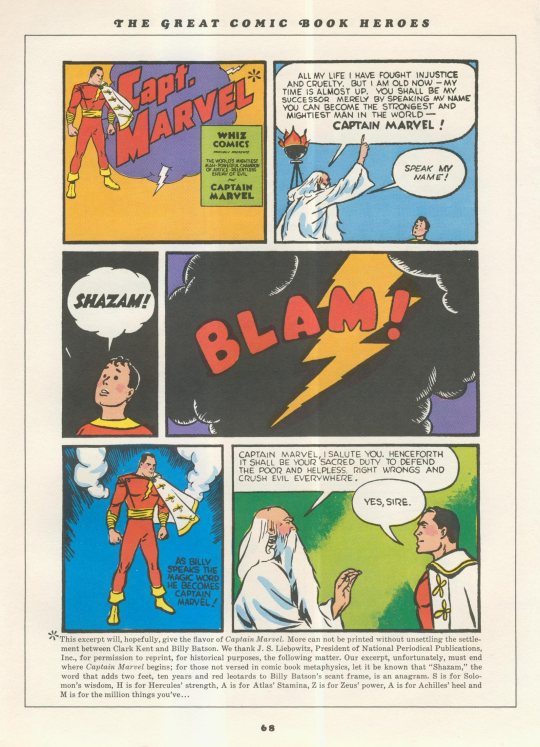
Feiffer was also enough of a bigwig in 1965 that he was able to negotiate a minor detente in the legal agreement between DC/national Periodicals and Fawcett Publications, enough to allow him to reprint a single page’s worth of Captain Marvel. In 1977 when I read this book, I didn’t understand why this was a big deal (and in fact I had read this same story twice before already.) I believe it was the one and only exception ever granted, at least up until the point where DC began licensing the rights to Captain Marvel from Fawcett in 1973.
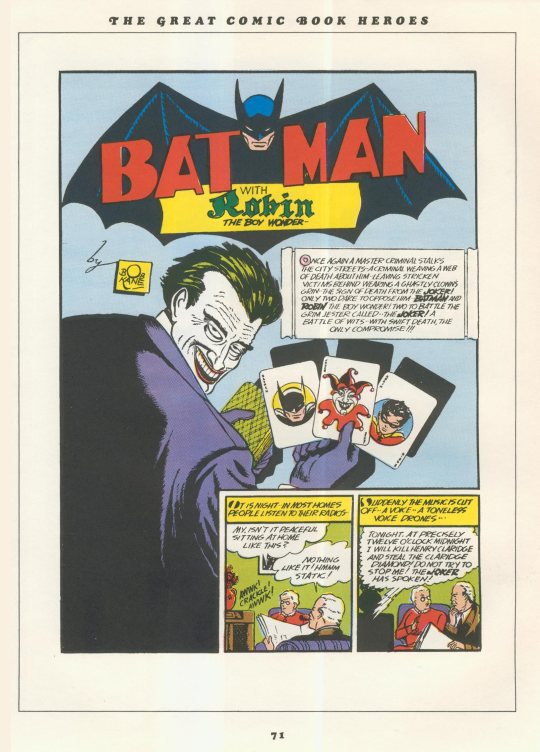
I will confess that, when I first bought this volume, I didn’t read any of Feiffer’s text. That seemed like work to me, who needed it? It was the stories that I was here for! I was hypnotized by the reproduction of one of the comic books that Feiffer had made and sold on the neighborhood street when he was a kid. I had begun to make my own comic books before this, and so this was a very primal point of connection for me–I think I may have read the text of just that one “chapter” (they were all short enough that they were only three or four pages long.)
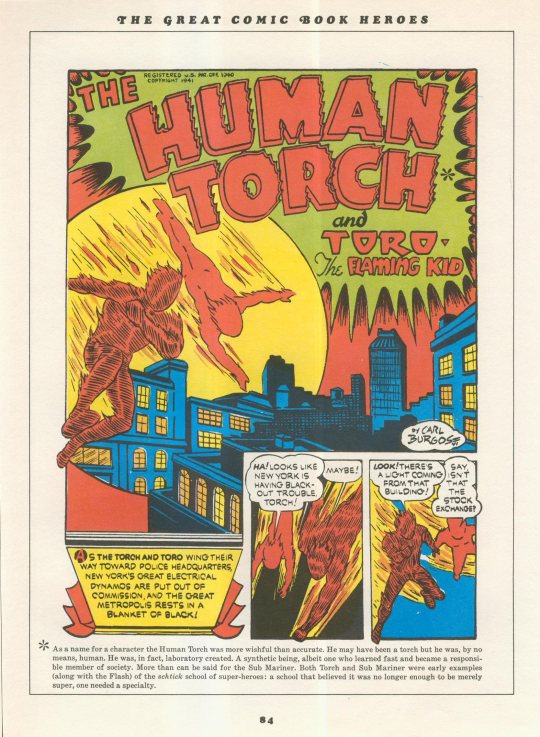
I also didn’t read the stories featuring the Human Torch, the Sub-Mariner and Captain America that were included in the volume. Why would I? I had learned from past experience that I adamantly disliked Marvel comics, decried them whenever I was asked about them, so there was no need to investigate these stories. It would literally be months, not until the summer of 1977, when, on one dull day with nothing better to do, I finally cracked and read through both Feiffer’s full text and the three Marvel stories. And they (along with the write-ups on Timely in the Steranko History of Comics, coming soon) were enough to compel me to give Marvel another chance. But we’ll get to that in due time.
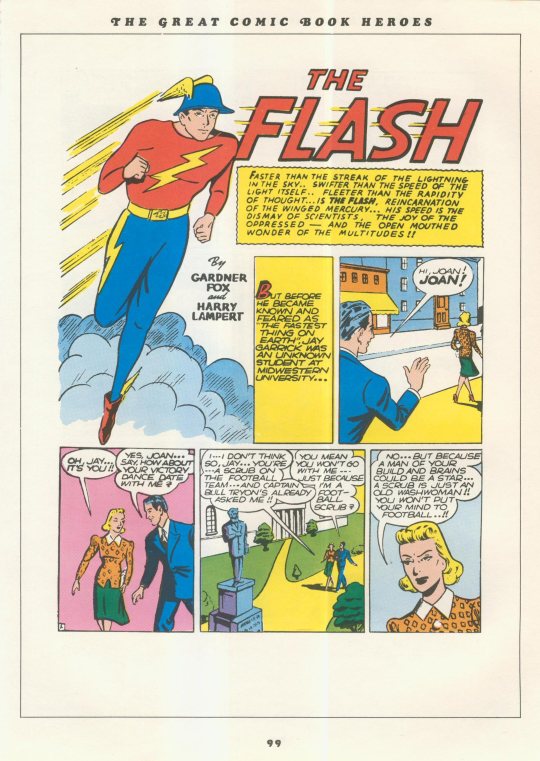
The one disappointing aspect of Feiffer’s book to me, coming to it twelve years later, is that there were already a number of stories in it that I’d read already. Because Feiffer tried to hit all of the mainstays of the big comic book houses in his reprints, and as often as possible, the opening or origin installments. The only times he varied from this approach was when there was some other aspect of the character or the strip that he was trying to highlight–a number of these series took a little while to completely crystallize in their final forms, and Feiffer took that into account when choosing his stories.
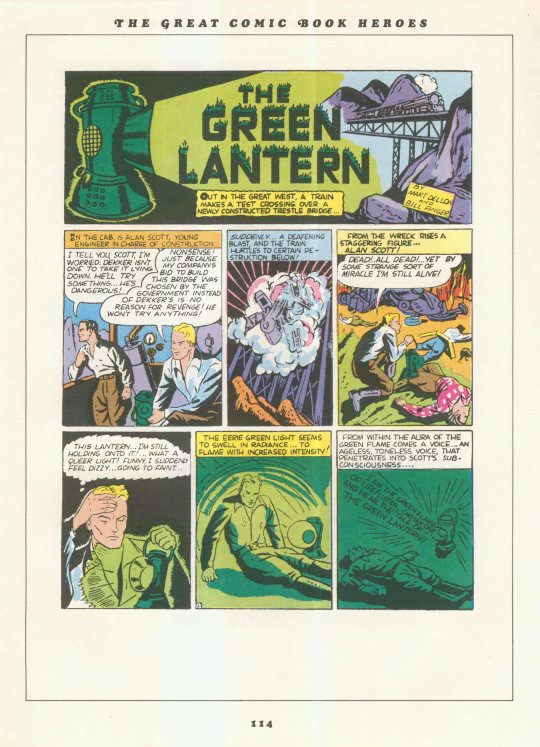
So what was reprinted in this volume? It opened with a two-page origin of Superman, taken not from ACTION COMICS #1 but rather from the more expanded version first shown in SUPERMAN #1. Thereafter, he ran a story that he sourced from SUPERMAN #3 but which was first published in ACTION COMICS #5. It’s really the first full story in which all of the quintessential elements of the Superman series coalesce: the Lois-Clark-Superman relationship in particular. There are several pages in the middle of it that were clearly reworked from newspaper strip samples, panels extended and reformatted into comic book pages haphazardly.
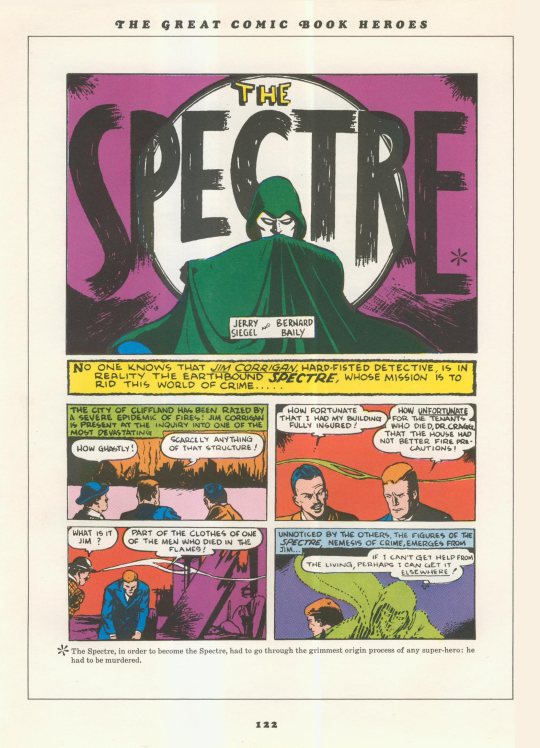
Following the single page of Captain Marvel he could show, Feiffer then reprints the origin of Batman, from BATMAN #1 (which I’d read), as well as the first story featuring the Joker (likewise). This was about a year in, by which point Robin had been introduced, and wit the debut of the Joker all of the elements were in place. But not new to me. Next was a relatively late Human Torch story from MARVEL MYSTERY COMICS #20–like Batman, by this point the Torch’s young partner Toro had come into the series, and it had settled down into typical super-heroics. But I didn’t read it, not yet.
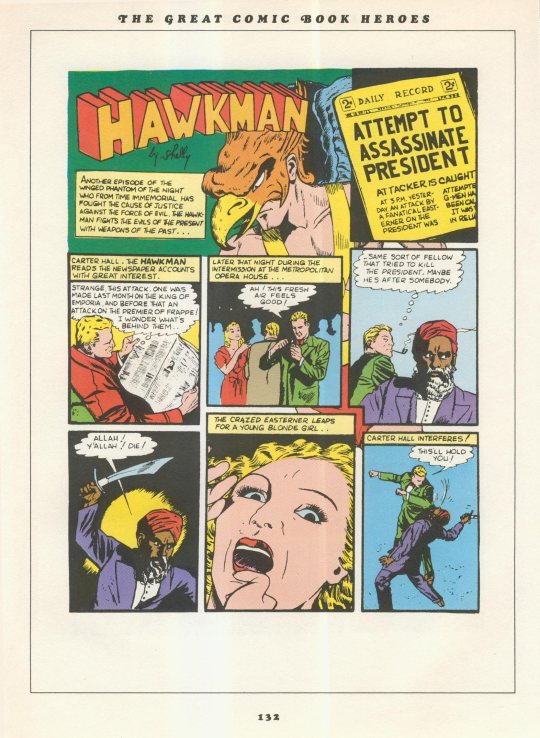
A pair of stories that I’d already experienced came next: the first adventure of the Flash (my third copy of it!) from FLASH COMICS #1 and the first installment of Green lantern from ALL-AMERICAN COMICS #16. Next came a solo Spectre story from ALL-STAR COMICS #1. I was familiar with this early version of the Spectre from the FAMOUS 1st EDITION reprint of ALL-STAR #3, but he wasn’t especially interesting to me. Because he was already dead and could do literally anything, there wasn’t a lot of drama to be found in his stories. Even as a kid, this deficit was apparent to me. Superman, at least, had to struggle to accomplish whatever his goal was.
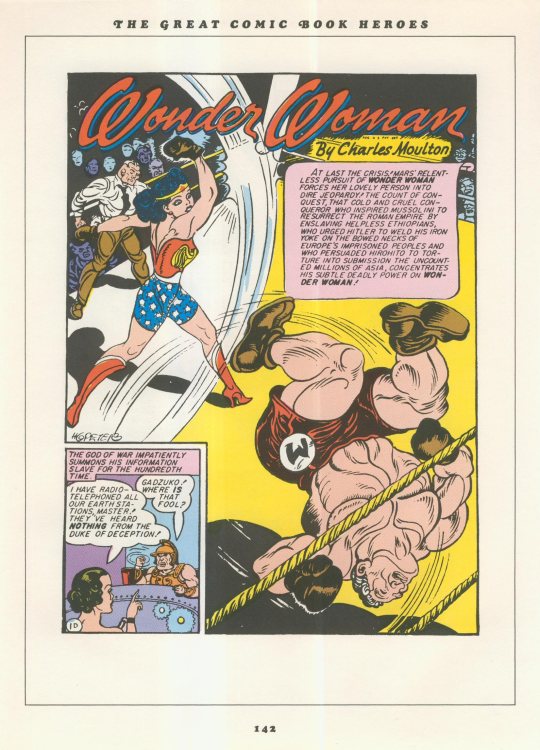
Next came an adventure of Hawkman, sourced from FLASH COMICS #5. Here, Feiffer skipped the earliest adventures of the winged wonder so as to showcase the work of Shelly Moldoff on the strip (and in particular how often he was swiping Flash Gordon panels by Alex Raymond, which happened everywhere.) This was followed by a Wonder Woman story from WONDER WOMAN #2–actually, it was a single chapter of a four-chapter larger story, but I wouldn’t discover this for decades. Feiffer chose it as a good example of some of the strange sexuality that was operating under the hood of what at first glance appeared to be a patriotic heroine series. This was the stuff that really made Wonder Woman sizzle, and the lack of which one of the reasons why her series had such a lack of pop in the 60s and 70s.
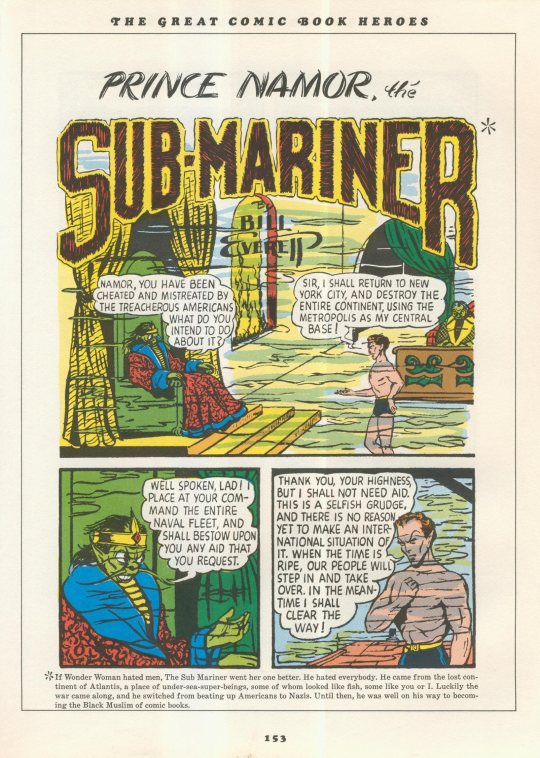
Then came a Sub-Mariner adventure from MARVEL MYSTERY COMICS #7, by which point creator Bill Everett had worked out the bugs. I didn’t read it for several months, but essentially it’s an orgy of destruction, as Namor returns to Manhattan to carve out vengeance for his undersea race by wrecking and destroying his way across the city–he even at one point accosts Mayor Fiorello LaGuardia. There isn’t much plot, only carnage–and it ends with Namor’s friend Berry Dean warning him that the Human Torch would be on his trail. But that historic meeting wasn’t included.
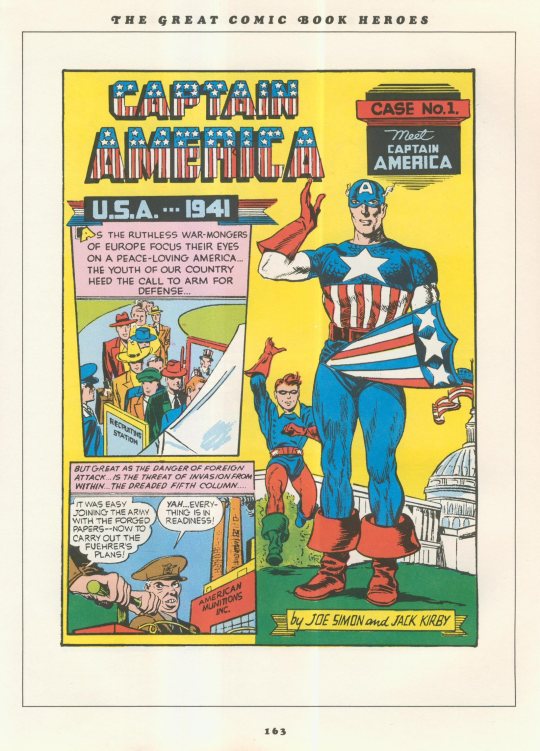
I also skipped the origin of Captain America, from CAPTAIN AMERICA COMICS #1. It’s a pretty crude piece of work, like most of what was reprinted in this volume. There are only hints of the explosiveness that Jack Kirby would bring to the comic book page in the next few issues, to say nothing of the next few decades. The pages were a little bit more jigsaw puzzle-y, but only a little bit. That would change as Kirby got going on Cap.
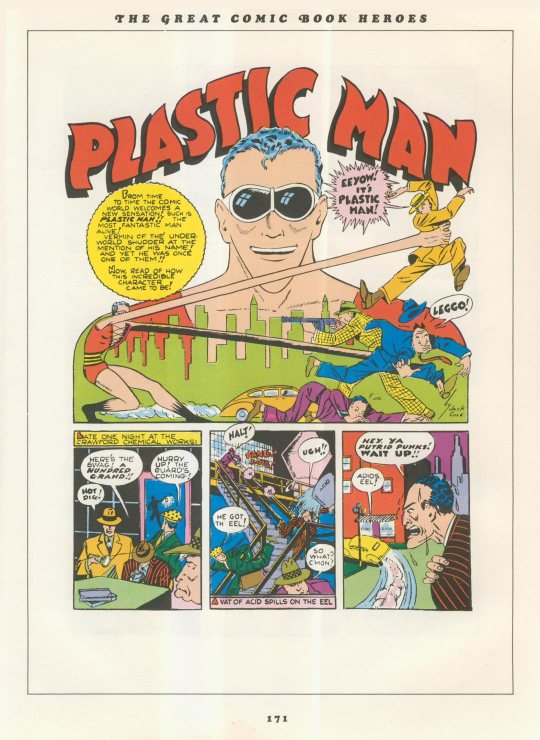
Next came the first Plastic Man adventure, from POLICE COMICS #1, and which I’d read a few weeks earlier in SECRET ORIGINS OF THE SUPER DC HEROES. It was still a fun tale, but one that only hinted at the inventiveness that Jack Cole would bring to the character and to the page. I felt the same way about the Spirit based on the story that Feiffer reprinted here. He spent a lot of time talking up how innovative and impressive a series it was, but from this sampling, I just couldn’t see it. Part of that, no doubt, is that most scholars consider the best period of Eisner’s Spirit to run from around 1946-1950 or so. But Feiffer was working for Eisner for most of that period–he wrote several of the most memorable tales–and so his interest was in the earliest Spirit adventures, the ones he read as a kid.
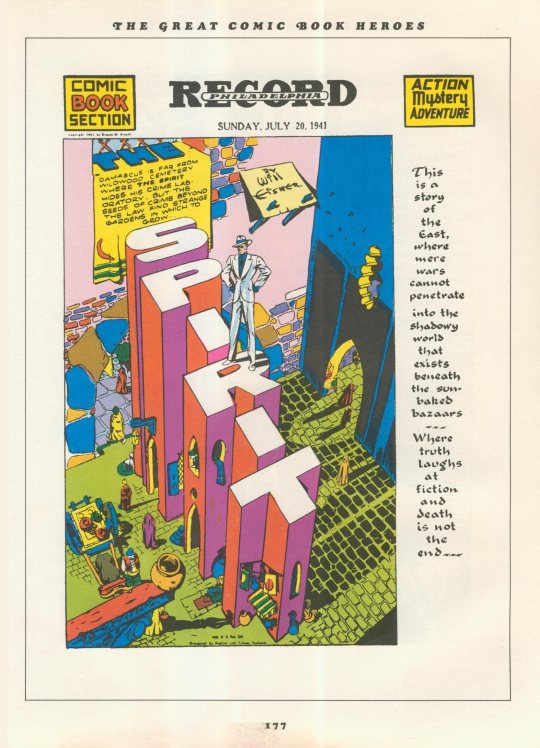
So it was a highly-enjoyable volume, and one that would have a greater impact on me over the course of time, but also slightly disappointing. But I was glad to have it, in particular because its existence came as a total surprise to me. At this point in time, there were precious few compilations of old comic book stories, so each one was like a treasured gem.
Post link

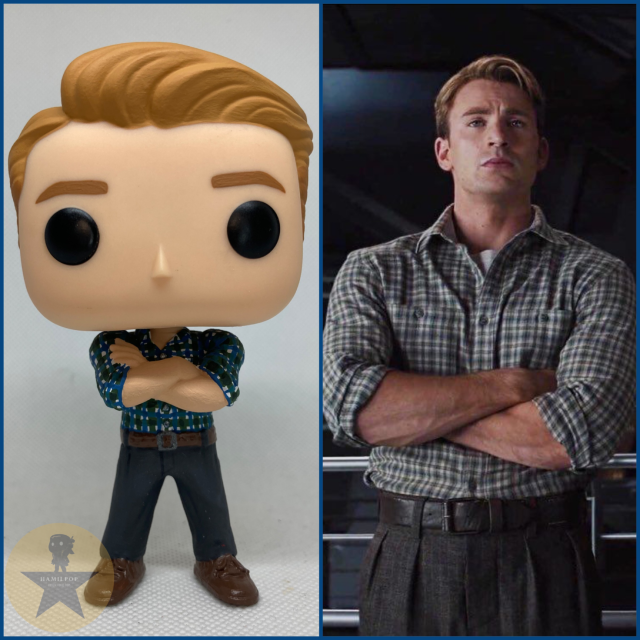

Steve Rogers/Captain America, Marvel’s The Avengers &Avengers: Age of Ultron - Civilian Clothes
I had some really random pieces lying around from other projects. Somehow, my brain said, “Hey, these would all go together to make your favorite Square wearing his most normal clothes.”
And so it was.
“Ultron” isn’t a very good movie, but Cap was so pretty in that blue shirt.
Available now at my Etsy! Only one of each.

Here is one more quick Steve Rogers for the Western AU
Writing a fanfic about this AU here: Never Goodbye
Find this post on:

Quick study of Sir Evans

I really liked What if? And know I need more
Steve: *staring longingly at Bucky* I can fix him.
Tony: I can make him worse.
Sam: well I can stick magnets on his arm, and make them spell out ‘dickhead.’
[Image Description: Tags reading “captain america punches Nazis in the face, and the gut, he also hits them with his shield, he will hit them here and there, and in a house and with a mouse, and in a box and with a fox, and in a car and in a tree, he would not let the Nazis be, and on a train and in the dark and in the rain, and with a goat, and on a boat, he will hit them anywhere”]
The AO3 Tag of the Day is: This is poetryI FOUND THE FIC THESE TAGS ARE ATTACHED TO AND IT DOES NOT DISAPPOINT: https://archiveofourown.org/works/9455495
REEEEAAAAAAD
Post link
Under-appreciated Moment: Rhodey’s admirable strength and resilience, staying true and loyal to his belief. ‘When you go through hardships and decide not to surrender, that is strength.’ Col James Rhodes is the strongest Avenger. ✨
Post link
It’s time to say goodbye to most of our old costumes, so we’re selling them at very sweet prices.
Buy here: https://www.etsy.com/shop/TwinsGeekShop

Yes, these one and only original dresses are on sale! (But only dresses)

This 50′s style dress inspired by classic Bucky costume:

And this wholecostume:

And this 50′s style top and skirt, inspired by Steve Rogers’ SSR uniform from first movie.

Fem!Bucky, 50′s style, classic comics costume.
Photo made two years ago. We wanted to make more Bucky costumes and gather all photos into a calendar, but this never happened.
Post link
“But the price of freedom is high. It always has been. And it’s a price I’m willing to pay.”Happy8thAnniversarytoCaptainAmerica:TheWinterSoldier
↳ Released April 4, 2014
Post link
anyone wanna hear my rant about how marvel basically destroyed media literacy
ok so. little anecdote before i start
back when guardians of the galaxy came out i went and watched it. bear in mind this was the first marvel movie i watched since thor. the first one. so naturally, when the credits rolled, i got up. immediately, the entire theatre started laughing at me and taunting me for missing the post credits scene. which was. you know. very fun for an autistic kid with massive social anxiety but i digress
my point is that, in order to consume marvel content, you have to have watched literally everything that came before the film you want to watch. there are lists and arguments and timelines consisting of i don’t know how many movies so the barrier of entry is *massive*. it’s so self selecting because literally only people who are committed will sit down to watch all of this stuff and god forbid you’re a casual who just wants to watch the one movie.
now i don’t have a problem with movie franchises or even movies that lean on other previous movies for an overarching narrative. but the marvel movies are exhausting mainly for these reasons:
1) they are blatantly a money making scheme. on a certain level, all movies are, naturally, but the marvel movies have such a disdain for their audience, for the people these characters are for and for the characters themselves that they will completely kill any given character’s arc - thor ragnarok did so much character development for thor and it was immediately undone the very next movie. characters are not allowed to have a consistent narrative or a satisfying ending and god forbid you’re someone who is invested in a character
2) marvel doesn’t trust its audience to put things together. everything is explained and explained again, we are on movie #4567 of collect the action hero without thought nor care for their arcs or their feelings or the things that make them themselves - the blatant whitewashing, the ableism in the treatment of characters like hawkeye, to name a few. it feels like most of the writers consider their average audience to be too stupid to follow a narrative thread without having their hand held
3) their spoiler culture. i don’t know if marvel introduced the idea that spoilers are a unique evil but GOD can it go die in a fire. not giving your actors full scripts, costumes, sets or context to play off of and then laughing at those *stupid* actors for being upset about that? the notion that the only reason to watch a movie is for the plot?
i don’t know about you, but if a spoiler can ruin your movie, it’s a fucking shit movie. even movies like gone girl or rebecca, which hinge upon their plot twists, are enjoyable EVEN IF YOU HAVE BEEN SPOILED. this enables marvel to withhold pay from actors because they are not aware how big a role they’re playing.
A PLOT TWIST SHOULD BE HINTED AT! if a few of your viewers figure it out that’s a good thing!!! a plot twist is not something that hits you out of nowhere with no hints or no possibility to figure it out by yourself! there is no merit whatsoever in punishing your audience for figuring out your plot twist (cough wandavision cough)
4) the way marvel has monopolised superhero movies. it’s not a strict monopoly, but marvel has managed to become synonymous with superhero movies and sets the standard for the way they are consumed. there are so many people whose media diet consists almost exclusively of marvel movies or movies like them, which teaches them to just accept what is thrown at them in disdain. so when they are shown a movie that doesn’t spell everything out, that is artistic or queer or up for interpretation, they get angry at the movie for not holding their hand. when you only know a very specific sort of media that never lets you think for yourself and that just keeps churning out more and more derivative content (i watched the last spiderman movie when my bf was here. not only did you need to watch ALL THE MARVEL MOVIES BEFORE, you also had to watch BOTH SPIDERMAN FRANCHISES in order to understand what the fuck is going on) that gatekeeps people who are NOT ENTERTAINED BY THIS BULLSHIT and creates a self reinforcing bubble
5) the way the movies broke apart and sanitised so many of their characters under the guise of expanding their appeal - in the most blatant example i can think of, they made PETER PARKER AT LEAST MIDDLE CLASS AND TIED HIS ORIGIN EXPLICITLY TO TONY STARK. like that is not the point. the people who write the characters don’t care about them and it shows and it is so, so exhausting.
marvel paved the way for massive, long series that get more and more difficult to enter as you go, unneccesary plot twists that literally gut punch you because you cannot have seen them coming, spoiler culture as it exists today while teaching their viewers that it’s okay to never ever have to think critically about media, just buy the next ticket for iron man 545 and no matter what we show you in it, you’re gonna be happy because it’s MARVEL
as a writer it legitimately makes me want to CRYto the people in the notes saying i didn’t bring up capitalism i have a whole point on the money aspect. but yes, this is in outgrowth of capitalism and profit maximisation. fuck capitalism
Yeah, I pretty much dropped the series after Civil War turned out to be a colossal disappointment.
…Alright, so I agree that it’s ridiculous for modern MCU movies to basically require homework, but I find pretty much every other complaint here to be excessive. They’re all problems that exist in Marvel movies, but they are also all problems that have existed in varying degrees across media for ages - the fact that you act like Marvel invented “spoiler culture” tells me you probably weren’t around for “Snape Kills Dumbledore,” for example.
Before I get into it, I want to be clear: you’re allowed to dislike what you want to dislike. Criticism of media is not only valid, but essential. If you disagree with anything I say, that’s totally fine! A lot of this is subjective. But I happen to enjoy Marvel movies and TV shows (in general), and it’s frustrating to me that people can practically say “it’s Stan Lee’s fault that the Cuban Missile Crisis happened” and everyone will applaud because popular thing bad.
So.
1) “It’s a money making scheme!”
Most movies are. I don’t think this is actually your argument for this paragraph, but it’s the first sentence, so I’ll use it as a header here.
What I suspect is that your frustration is with some perceived lack of soul - the characters you like change between iterations, like they’re puppets instead of people, gears turning in some grand money machine. And it’s particularly galling because sometimes those characters ARE used by one person with a particularly strong vision, and then when they show up in someone else’s work they’re completely different. And as much as it’s okay to be frustrated like that… isn’t it kind of unreasonable to expect a character to be written exactly the same by 5 or 6 different people?
If your problem is the fact that a character is being written by 5 or 6 different people at all then that’s a different issue, and I don’t think it’s one that can be solved in the bounds of a connected media setting. And subjectively, I think that having that sort of connected cinematic universe is better than not having it - it allows for stories to be told that we wouldn’t be able to pull off otherwise. Outside the medium of film, Brandon Sanderson is doing something similar with his Cosmere setting, and even he needs to branch out and let other authors in to fill the space. The validity of connected media is its own discussion (I think it’s a very good thing) but
2) “Marvel doesn’t trust its audience to understand plotlines!”
I don’t actually know what you’re getting at here, because you didn’t give any examples…? Also in the very next paragraph you complain that Wandavision didn’t foreshadow its twists, which tells me maybe you… didn’t understand the plotline?
Later in the paragraph you complain about ableism and whitewashing… neither of which are really connected to plotlines at all, but I do think they’re more valid criticisms, especially of earlier Marvel properties. I’m a straight, white, cis man with no visible and/or restrictive disabilities so I’m not the right person to talk about this issue - I like that they’re able to make movies that aren’t targeted toward me in particular, with an extra emphasis on lived experiences in cultures I’m not part of, and I like that they put some effort into things like the Hawkeye TV series with the protagonist’s developing deafness and his interactions with a fully-deaf antagonist, but (and I’m saying this unironically) it also means I’m not correct to judge whether they are enough.
Either way, not sure what it has to do with the writers “considering their audience too stupid to follow a narrative thread without having their hand held.” And at the risk of whataboutism… Marvel is one of the only groups in this space that seems to even be trying to improve.
3) “Marvel’s spoiler culture has gone too far!”
I agree that it was insane for them to go to those lengths in Infinity War/Endgame, though I’d argue that in those cases they were trying to do something new - it was a cultural event, a full year where Infinity War’s shocking ending was in the social consciousness, a full year where people were waiting to see how it would resolve, and if someone had come out 6 months in and said “they win but Tony Stark dies for real,” it would have taken the impact out of that experience.
This single extenuating circumstance aside, I agree that it would be crazy to keep up that spoiler paranoia… but they aren’t. Spiderman 3 had its Garfield/Macguire cameos spoiled years in advance. The full plot of Dr Strange 2 is available online. Hell, we know there have recently been test screenings of Thor 4, which means it’s probably not hard to find someone out there who could go into detail about how that’s going to look.
And as I said, spoiler culture is nothing new. I agree that a good movie is still good even if you know what’s going to happen, but that doesn’t mean you shouldn’t craft a movie to be enjoyed a certain way on that first viewing. When the last few Harry Potter books came out, they were full of major character deaths, and at midnight releases you’d occasionally have people buying the book, skipping to the end, and ruining it for everyone in line. When Game of Thrones was airing, people who read the books knew the Red Wedding was about to happen, and I guarantee that the experience was different for TV-only viewers. Hell, there’s a niche example with Ocarina of Time, which released in the 90s, and yet somehow Dan Avidan of Game Grumps didn’t know Sheik was Zelda… and his live, for-real reaction was caught on video here. There is value in allowing people to experience things spoiler-free, and it gets harder and harder in the age of social media.
4) “Marvel has monopolized superhero movies!”
Yeah.Because they’re the only people who seem to know how to make them good.
Sony recently released a movie about Morbius, a villain from the Spider-Man franchise. It was a complete fucking mess. None of the characters have realistic motivations. Stuff just happens for plot convenience. There are entire action scenes where you can’t tell what’s happening because the CGI obscures the characters’ actions and decisions. Previously they made two Venom movies, which were better-received, but I don’t think I’ve ever met someone who said Venom was their favorite superhero movie.
On the DC side of things, you have a bunch of Superman stuff where the focus is on how haaaard it is to be the only person in the world who matters, how you can’t let yourself help people because then they’ll relyyyy on you… and then you have 3 or 4 different Batman series, which tend to be stronger movies but also incidentally tend not to be part of cinematic universes. As far as the DCEU goes, the only stuff that was well-received almost across the board was James Gunn’s Suicide Squad, James Gunn’s Peacemaker series, and the Justice League Snyder Cut - the first two being basically Marvel properties in DC clothing, and the latter being practically an Auteur piece by a guy who finally managed to convince Sony execs that his movie would be better without their input. To rephrase, the best DC movies are the ones that were made without DC execs having much say in the matter; they hired James Gunn to do the James Gunn things he demonstrated at Marvel, and they caved under pressure from fans to let Zack Snyder throw money at his Ayn Rand wish-fulfillment magnum opus (which, admittedly, was beautiful to look at even if I took issue with a lot of the subject matter).
The reason Marvel has monopolized superhero movies is because they have a pattern that works - treat the character like a human being who happens to have special talents and/or a higher calling, allow your directors to express themselves, and then once all’s said and done sprinkle in some cameos and promises that there’s this other thing that the audience should get excited about. It’s formulaic, it produces a lot of stuff that is just acceptable, but it’s reliable - not every MCU movie is a world-shaking hit, but it’s been a while since there was one that was actively bad.
5) “They made their characters bland under the guise of expanding their appeal!”
Okay, but literally the only character you mention is Spider-Man, who was kind of a special case. In his own stories, he’s a normal guy who occasionally gets involved in things that are way bigger than he is, but in the MCU he showed up in Civil War - he literally started out by being defined by a guy who gets involved in big things, subbing in Tony Stark for Uncle Ben (because his introduction to the MCU didn’t allow for an Uncle Ben arc), and then they… realized they’d made a mistake, and at the end of his most recent movie he ended up with no money, no connections, no safety net, just a desire to do good and a set of superpowers that gave him the ability to accomplish it. Which is to say, Spider-Man in the MCU is now Spider-Man from the comics.
Other than that, the characters have - at least in their introductions - been pretty loyal to their source material, as far as I can tell. Tony Stark was an irresponsible alcoholic playboy, driven to superheroism by a need to redeem himself. Steve Rogers was a good-hearted kid who was granted the power to stand up to bullies. Thor was a larger-than-life braggart who needed a dose of humility from time to time.
Hell, if you want to see evidence that they’re willing to branch out with their characters, look no further than Moon Knight, which opens with an everyman struggling to live his life while being disrupted when an action hero takes over his body and then leaves him to pick up the pieces. (I’m not confident it will stay at this level of quality, as every single Marvel TV show so far has had a promising opening and a weak-ass ending, but that’s a different discussion!)
TL;DR: Your complaints are valid, but it’s totally unfair to say exclusively a Marvel problem. Most of your points are either wholly untrue or only point to exceptions-with-good-reasons within the MCU, and they all generally point to problems with media as a whole - there’s an inherent conflict between fan-loyalty and broad accessibility, between artistic merit and financial viability. Marvel is a big obvious target because they consistently make financial successes, but the problems you lay out are symptoms evident in Marvel properties, but not caused by Marvel in any capacity, and pretending it’s the case means people are going to be way less likely to address the problem effectively.
It isn’t Marvel. It is capitalism. Punishing Marvel somehow won’t make the problem go away, especially when your main complaint appears to be that they’re making the movies broadly appealing.
Yes, you do need this Captain America: Civil War trailer!
Il trailer del giorno: Captain America - Civil War!

